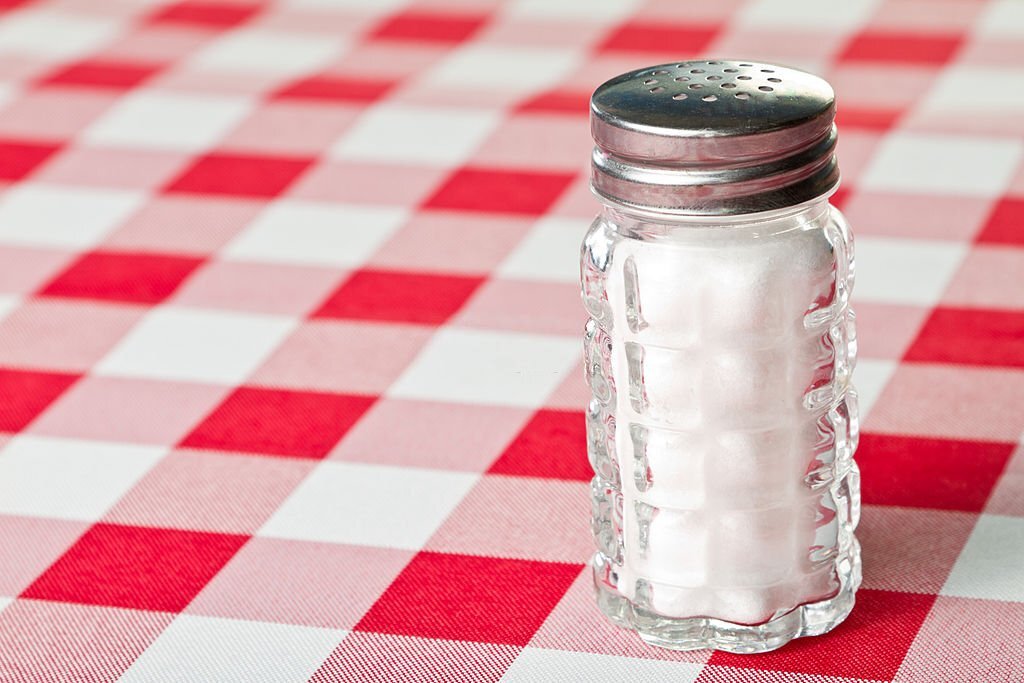22 out of 29 brands of table salt in Uzbekistan do not meet the requirements – list
Samples of table salt products consumed in the country were tested and test results were announced.

Photo: Getty Images
In Uzbekistan, it was found that table salt of 22 brands does not meet the requirements. The Committee for Developing Competition and Protecting Consumer Rights tested 29 samples of table salt products and announced the test results.
It is noted that the committee and regional bodies, in cooperation with the Sanitary-Epidemiological Peace and Public Health Committee, the Technical Regulatory Agency, carried out control purchases of a total of 441 products in Uzbekistan, of which 103 products were found to be non-compliant with technical regulatory documents.
In particular, the committee carried out such a control purchase of table salt. 29 samples of salt products were tested in it. Regrettably, 76% of 22 types of table salt were found to be non-compliant with current requirements according to laboratory results.
The list of table salts with low iodine content is as follows:
“Ideal” table salt;
“Dunyo” table salt;
“Sakhovat” table salt;
“Kafolat” table salt;
“Safo” table salt;
“Ozoda-uz” table salt;
“Baraka” table salt;
“Oshpaz” table salt;
“Orol” table salt;
“Yagona ishonch” table salt;
“Safir” table salt;
“Zarafshon kumush tuzi”;
“Salina” table salt;
“Aziya” table salt;
“Melkaya” table salt;
“Osh tuzi”;
“Fayzli” table salt.
For information, in accordance with the requirements of the regulatory document in force in Uzbekistan – state standard No. 1091 adopted in 2017, the packaging of salt products must contain the following information:
- product name, type and size;
- the name of the memorized addition;
- content of iodine;
- net weight (kg);
- production date (day, month, year);
- storage period;
- storage conditions;
- other information specified in this standard.
However, the Committee for Developing Competition and Protecting Consumer Rights has also identified table salt that does not meet these requirements.
For example, it was known that the appearance of “Saodat” table salt does not meet the requirements of this normative document.
It was also found that “Fayzli” table salt does not have a production date. Appropriate actions have been taken by the competent authorities to eliminate these shortcomings and prevent them from happening in the future.
“The committee and its regional bodies, in turn, will continue the systematic studies as above, and will continue to take measures to prevent the violation of the rights of an indefinite number of consumers and take measures to compensate for the damage,” the committee said.
“When purchasing food products, consumers should pay attention to the fact that they have not been stored in the sun, the quality of the product, the availability of information on the outer packaging, and the sanitary-epidemiological conclusion confirming the consistency of this product. If the above information is not provided by the seller, consumers are requested to report to the 1159 “call center” of the Committee for Developing Competition and Protecting Consumer Rights, which is available 24/7, or to the email [email protected],” the organization urged citizens to be aware.
It is also added that this information is actual as of the date of the inspection.
For information, table salts produced and sold in Uzbekistan must be iodized. This is one of the measures aimed at preventing iodine deficiency diseases in the country. The reason is that thyroid diseases occur due to lack of iodine in the human body.
Related News

15:40 / 22.09.2025
Uzbekistan expands university admission opportunities for applicants who failed entrance exams

16:48 / 15.09.2025
International certificates to count toward school graduation exams in Uzbekistan

15:55 / 15.09.2025
Unified state exam to replace three different tests in Uzbekistan’s schools

19:26 / 09.09.2025



